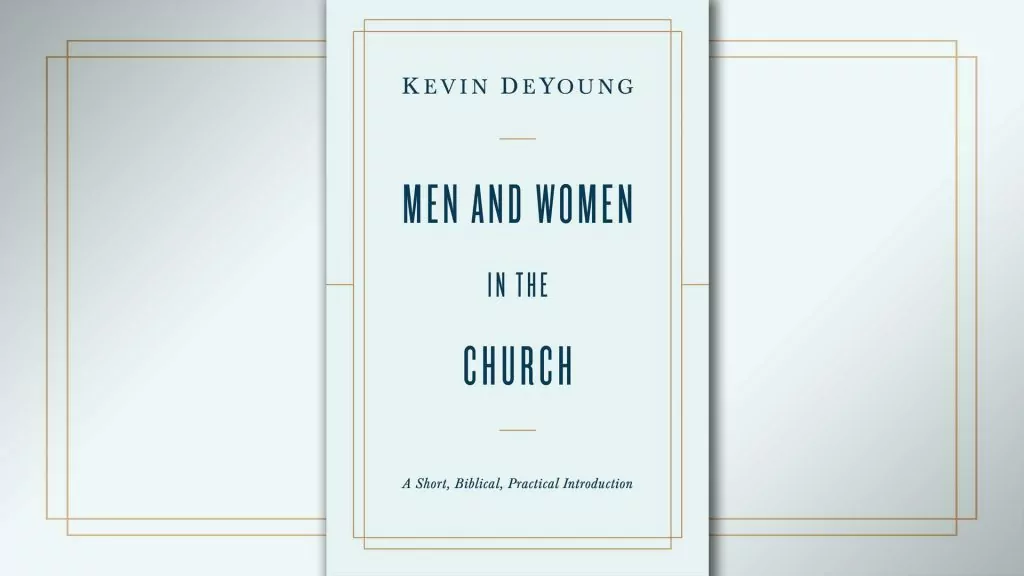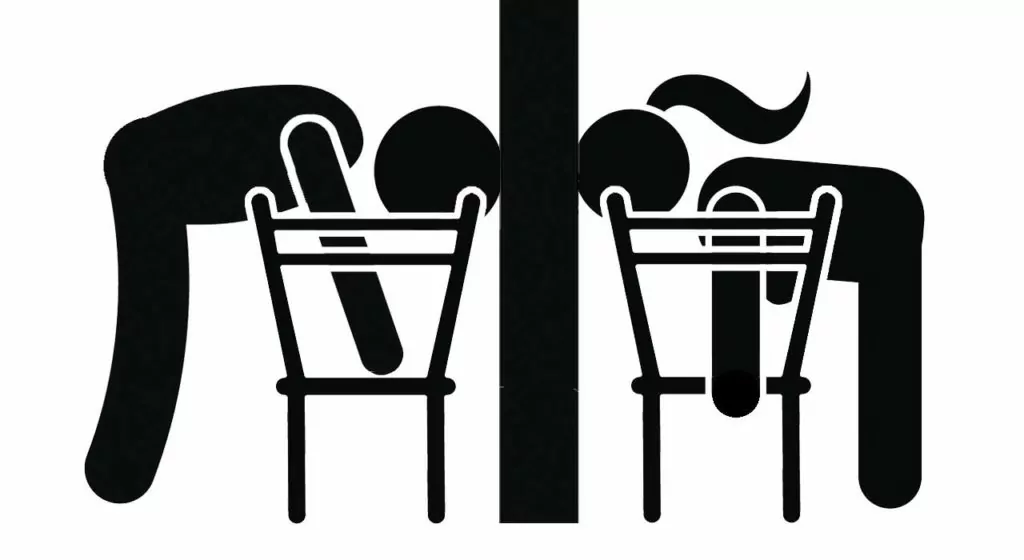
Gender roles
More to consider: women on setting life and post-secondary goals
The timing of a woman’s life can get complicated, especially when she faces decisions about whether to pursue higher education or not. In a society that insists on women getting an education and establishing a career before even thinking about marriage and family, it’s not always fashionable to point this reality out. But women simply have more considerations to take into account when making these decisions.
The challenging part is because there is no guarantee of a husband coming along, or children being born, she faces an added layer of uncertainty. Essentially, a woman who wants marriage and a family is trying to plan for two futures, without knowing which future will happen for her.
The questions are endless. Should she pursue practical education and a career just in case she doesn’t get married? Should she work in a dead-end “for now” job because she expects to transition into motherhood soon? Should she take out student loans, which could limit her freedom to make choices in the future? And when a woman is intellectually gifted, or “smart,” the questions can be tougher. Is she “wasting” her gifts if she doesn’t pursue an education? Did she waste her time or money if she does pursue an education and never “uses” it after she gets married?
The ultimate answer to this bewildering maze of questions is simply that there is no one-size-fits-all path. The many possible ways an individual woman uses her gifts can look quite different from one woman to another. Life, after all, is not mapped out for us ahead of time, but it is a journey where we take each step as best we can, trusting in God.
But in this article I want to explore these challenges in a bit more depth so that, first of all, women see that they’re not alone in facing these questions – especially in a culture that shies away from discussing them. And secondly, I want to explore them so that the Christian community understands how complex (and frustrating!) navigating these questions can be. And lastly, I want to offer guidance where any guidance can be given.
Making a life plan
For me, deciding what to do after high school was a confusing mess. I was open to marriage and children, but I hadn’t met anyone. I was considered “smart” and everyone expected me to go to university, and I did want to study, but I didn't know what to study. The idea of having a “career” didn't appeal to me – I certainly didn't relate to the idea of being a “girlboss.” But I felt stuck between devoting time and energy and money to studying things I enjoyed, or finding a career that could support me while I was single, or keeping my options open if I met someone.
I wanted to go beyond what I personally experienced in writing this article so I reached out to other Reformed women I’d connected with through Facebook. And I received a flood of responses about their own experiences in considering post-secondary education.

How women timed their education was an important question for me, because I’ve heard a lot of theories about how college is to blame for the low birth rate in North America. My assumption initially was that women who wanted children had always had that on their mind to some extent. But in my conversations it turned out that not everyone did. For some women, the timing of their life just “worked out.” As Jen Crowder explains, “As a young person in my 20s, there were times where it felt ‘hard’ to not be dating, but the Lord richly blessed me – with peace to be patient, and even more so in bringing my spouse and I together in His marvelous timing shortly after I started my first teaching position. As a young person, it’s very hard to see four, five, or six years as a very short period of one’s life, but looking back on it now, God’s timing is always perfect.” And her experience was echoed by other women who met their husband in their last year of their studies, or just after, and didn’t experience a big conflict between education and beginning a family.
Life does not nicely “work out” for everyone, but when considering whether to study or not, this is a comforting reminder to young women that everything is in God’s hands. Sometimes you do borrow worry about the future before you need to.
For other women, the timing of life events did overlap. “I remember studying for an exam while in labor at the hospital, and writing an exam a week after giving birth!” says Anna Nienhuis. Some had to fit their studies in around taking care of small children, or put their studies on hold and resume them when their children were older. Some women did not start until later: “I did not consider post-secondary possibilities until I was in my early 30s, married for 12 years, and had five children,” says Sarah Vandergugten. And some found themselves required to go back to school in order to support themselves or their families when they hadn’t expected it. All of these circumstances made studying much more challenging, but somehow they continued to see God’s hand guiding them through it all.
Sometimes when you’re young you can feel like you have to be able to predict your future and plan for it responsibly. And to some extent, women do have to consider how their education, jobs and financial situation might impact their freedom to have children. But well-meaning advice can make it sound like your life can all be planned out perfectly. It’s easy to say, “women should pursue marriage first, then children, and then a career if she wants,” or, alternatively, “women should get an education and a career first, and then marriage and children.” But in real life, the path individuals take tends to be more much complex than that, in ways that can’t always be planned out. Even when events in our life overlap in chaotic ways, women and families muddle through while trusting in God. The challenges teach them to trust in Him and the strength He provides.
Some women did change their plans when they met their future husband. It might have been a switch from a longer program to a shorter program, such as switching from nursing to healthcare aide. Or it was a switch from something less flexible to something more flexible. “The career I was studying for was not compatible in any way with my husband’s and so I chose to change my plans. Since I had just started my education it was easy enough to change it,” says Deanna DeWit. Others switched from something with fewer career opportunities, such as a Ph.D., to a regular teaching degree which offered more employment. And lastly, some women went the opposite direction, switching from something “practical” to pursuing study at a Master’s and Ph.D. level when they discovered their love of learning, with the encouragement and support of their husbands.
This simply shows how, as you grow up, you can become more aware of yourself and your gifts, and what makes sense for the life God has called you to. You can start something and change paths later. Sometimes changing your path while you can is the best decision.
Then there were more than a few women who regretted pursuing higher education, or at least weren’t sure it had been worthwhile for them. A few felt they had pursued it because of family expectations, or because they’d absorbed the message from culture to pursue a career first. Some even mentioned in hindsight they felt they’d delayed marriage and hadn’t been accepting God’s will for their lives at that time, though they had come to terms with the choices they’d made. It seems that post-secondary wasn’t a perfect fit for every woman.
And it’s true that higher education is not for everyone! For many women it makes sense, especially if there is no husband on the horizon and they may have to support themselves one day. In fact, many women felt free to begin because they weren’t expecting marriage in the very near future.
But decisions should never be made primarily because of cultural messages, family expectations, or fear of bad consequences. And cultural messages do shift over time – older generations felt unusual when pursuing higher education, whereas younger generations felt more cultural pressures to pursue it. “I had believed the idea – a lie actually – that if I was to be successful I had to go to university,” says Rebecca Van Middelkoop. “No one ever told me that directly but it was an idea that I seemed to have picked up over the years and I think many people believe it as well. As someone who was academically gifted it seemed like I was obligated to do something ‘big’ ... We often think that some careers are superior or more meaningful compared to other careers, especially ones that are more entry level.” She suggests job shadowing, internships and summer jobs in a field you’re interested in to test out what opportunities exist and whether you do need more education.
For other women, higher education could be a path God is calling them to. “God doesn’t have a general plan or calling for all women... God has a specific plan for each of His children,” says Rachelle van Leeuwen. “God’s plan for me was to put people in my life who would continue to encourage me to further my education. If He is putting those people in your life, don’t balk at it; instead, explore different paths that are realistic for you in your current stage of life (not on where you hope to be one day).”
Which brings us to discernment, or listening to God’s will for your life.
Discernment
In the end, making this decision is simply a process of discernment, of drawing near to God. What is God’s call on your life specifically? For me, the phrases “pray about it,” and “seek God’s will,” felt formulaic when I was trying to make decisions, and felt frustrating when it felt like He was silent. But so often phrases become a cliché because they’re true. When I'm making decisions in life, when I feel in the dark and confused, that is when these supposedly tired and formulaic statements hold the most truth. That is when God is teaching me to be persistent in seeking after Him, making decisions as best I can at each step, and trusting that I don’t need to be afraid of the future.
You may not hear God’s voice from the sky telling you directly what to do, but you can lean on Him as you study your gifts, circumstances and responsibilities and make the best choices about how you can serve Him with what He’s given you.
This means that, yes, if your passion is to be a wife and mother, it’s worth discerning what steps to take to pursue this too! Sometimes we feel we have to leave this area of our lives entirely in God’s hands without taking any action that we might take in other areas of our lives (in the way we might in our careers). Of course, we can’t pursue marriage in the same way as a career, but we can do things like staying social with other likeminded Christians (even if we're busy studying at university), being involved in church activities, being open to being introduced to possibilities, and maybe even visiting other areas of the country. While we should do the tasks God gives us, it’s not an either/or choice when it comes to marriage or career. Society might tell you to not think about marriage until after your career is established but if you want it, it’s worthwhile to keep your eyes open even while you're studying.
Lastly, some women mentioned feeling judged, both for looking too “desperate” for marriage by not pursuing a career, or for having a career when most women around them didn’t. But if we truly believe our sisters are looking to God to discern how He will work in their individual lives, we can expect it to look a little different from person to person. God created humans in His image to glorify Him, but this also happens in an individual sense – we are not all eyes, or hands, or heads. We do not start off knowing all that we as an arm (for example) can do, but we grow into it by fixing our eyes on Christ. And so we can also turn to one another and encourage each other, and take the time to truly understand how others navigated their experiences and made their own decisions.
And so, my last piece of advice would be to talk to other women! Through writing this piece, I was inspired by my fellow sisters in Christ, as I listened to how God had guided their life journeys. Each story is an amazing story, whether their path was straightforward or more bumpy. In fact, I wish I had more room to tell these stories. In my confused high school years, I could've benefited from having some of these conversations about how life paths can be anything but straight and still be clearly guided by the hand of God.
Jenn VanLeeuwen sums it up like this, “If you would have asked me at 18 what my life was going to look like at 24, I definitely envisioned being married and having a few kids and a dog. However, God, in His wisdom, had that in store 10 years later. I was able to complete a number of university degrees and certifications, move across the country a few times for different teaching jobs, travel, and grow so very much as an individual!”
Conclusion
There are many more considerations I haven’t covered, including financing education and whether debt makes sense, whether to choose a practical career or follow your passion, whether secular college is wise, and when seeking knowledge for knowledge’s sake is worth pursuing. Debt, in particular, can have a huge impact on young women’s freedom to make choices, but her passions and goals can also shape the path of her life. In short, while figuring out how education fits into the timeline of your life is one piece of the puzzle, there are many other factors to take into account.
However, ultimately the process is not about weighing every possible consideration, but rather about drawing closer to God and to what He is calling you to. May He guide you.

















